
Problems with your tomato plants giving you a headache? Aspirin may be the cure for your headache problems, and your tomato plant problems too.
This may be one of the lesser-known common gardening remedies, but it has some science to back it up. From disease resistance to increasing yield, this tiny tablet can do a world of good for your plants.
The key is salicylic acid.

The main compound in aspirin is acetylsalicylic acid. This breaks down into its main components – salicylic acid and acetic acid – when dissolved in water.
Plants naturally produce salicylic acid as part of their immune response, but often too slowly to work effectively. Thus, the theory goes that dosing your tomato plants with some aspirin will give them an immune boost and return them to good health, much like it does for humans.
However, it is certainly not a gardening cure-all.
The confirmation of some of the benefits of aspirin for tomato plants has led to a slew of myths with no basis in science. While there are several things aspirin can do, there are others that it just can’t, no matter how much the myths are perpetuated.
Which claims are backed by science, and which remain in the realm of myth and legend? Let’s find out.
3 Things Aspirin Does For Tomato Plants
1. Prevents Disease
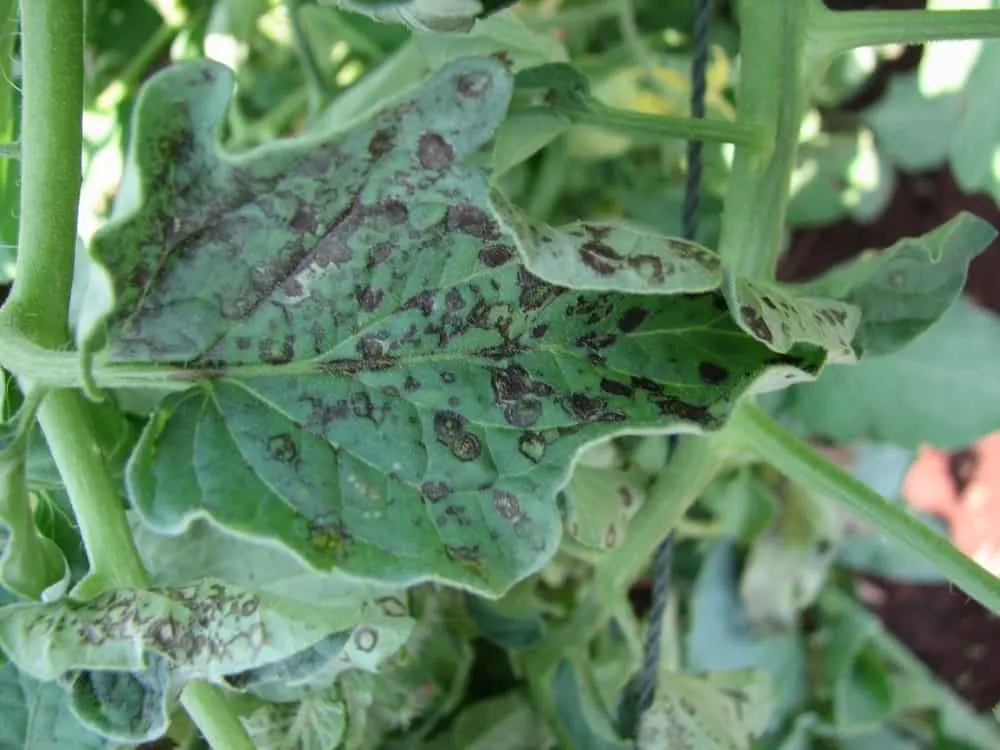
Disease is one of the most headache-inducing tomato plant problems out there. At worst, they can kill an entire crop, forcing you to remove and destroy every single tomato plant affected. But, it turns out a dose of aspirin can give you and your plants a fighting chance.
Here’s the science. Systemic acquired resistance (SAR) is an immune signal pathway in plants triggered by problems like disease to help plants defend themselves. When this pathway is activated, the plant produces salicylic acid at the site of the problem. Salicylic acid does not fight infection, but ‘tells’ the plant to begin fighting using its own defenses.
In a study conducted by the U.S. Department of Agriculture, salicylic acid treatments reduced instances of the bacterium potato purple top phytoplasma from 94% (the control group) to 47%. The plants also demonstrated resistance to the bacterium over a month after their initial exposure. The researchers applied the compound soon after they planted using a spray solution and a root drench.
This study was conducted in a lab, so its efficacy in your garden is not yet proven. And the range of diseases it is effective against is unknown. But, the significant lab results and nature of the effects suggest that a wide range of diseases are affected. As the study was conducted with pure salicylic acid, and not aspirin, the effective dosage is also unclear. However, most studies suggest a ratio of one 250mg tablet dissolved in one gallon of water.
Apply the mixture as a foliar spray, root drench, or soak the seeds in the mixture before planting. Do this in the morning to prevent leaf scorch and don’t alter the ratio as too much aspirin can have adverse effects.
2. Increases Heat Tolerance And Drought Resistance
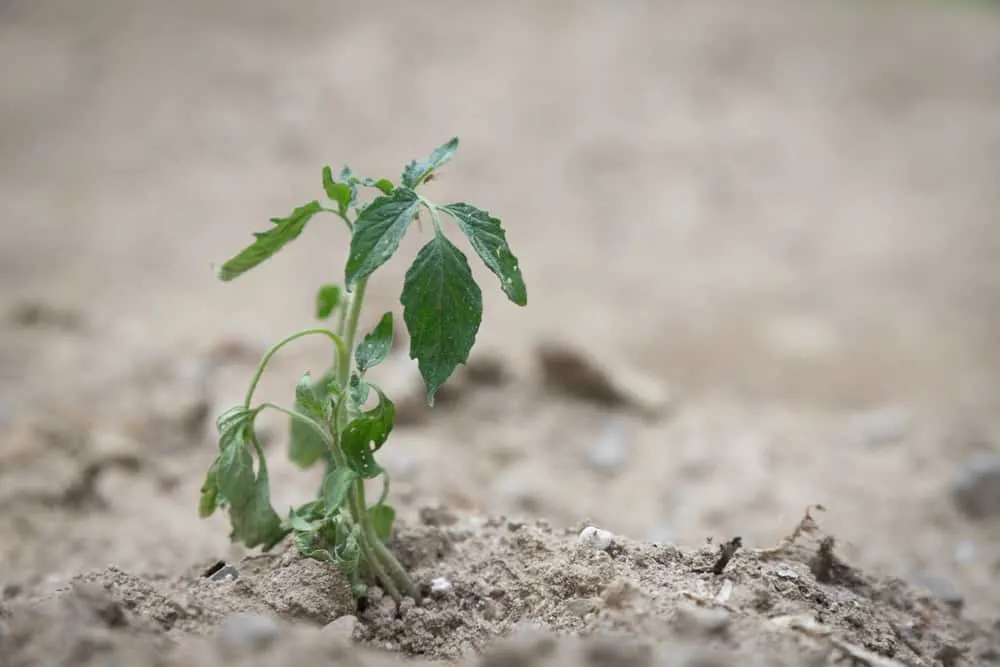
Tomatoes are often considered fussy plants, faltering at the slightest change in conditions. While this may be an exaggeration, tomato plants do face stress quite often under changes in temperature or water levels. To combat various types of stress in tomato plants, you’ll need to bulk up your medicine cabinet.
A study published in February 2000 tested the hypothesis that acetylsalicylic acid (Aspirin – ASA) and salicylic acid (SA) improved stress tolerance in beans and tomato plants. The researchers found that soaking the seeds in an ASA or SA solution enhanced the tolerance of the plants to heat, cold, and drought stress. They achieved the same results when the mixture was applied as a soil drench.
The scientists attributed this phenomenon to the “signaling role of these molecules”. In other words, the compound did not make the plants stress-tolerant directly, but activated the plants’ own defensive forces early on to encourage tolerance.
Before planting your tomato seedlings, give them a quick soak in an aspirin mix, or drench the soil after planting to trigger this response. Stress tolerance when aspirin is applied as a foliar spray has not been determined. So, if you want to ensure the success of these effects, rather opt for the tested and confirmed methods.
3. Increases Yield
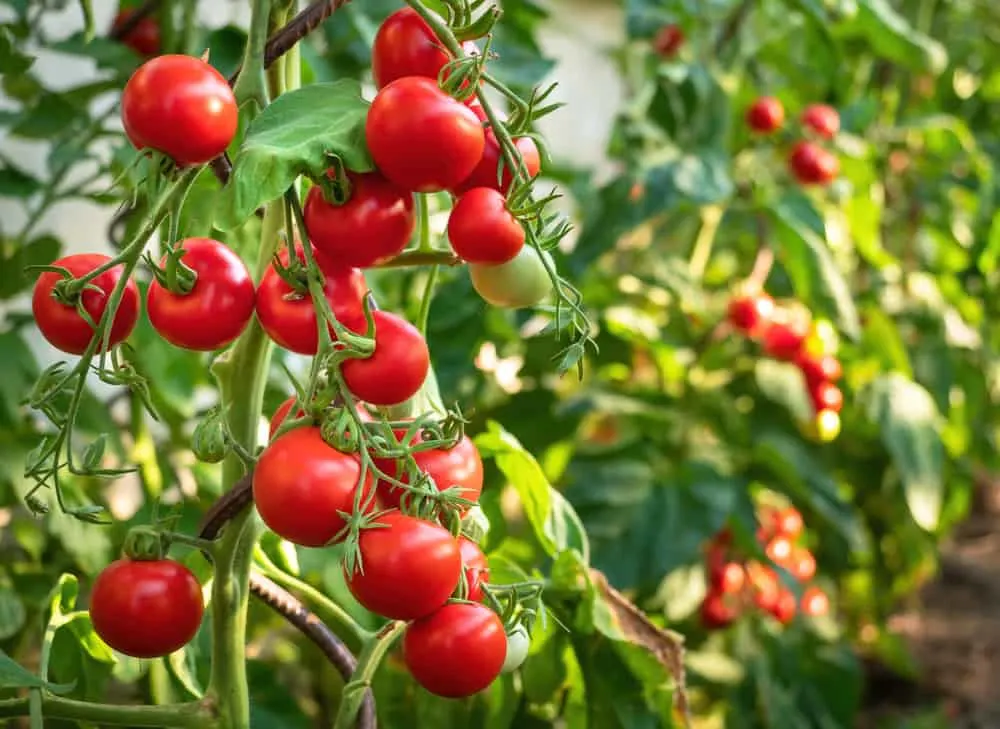
We all want a great harvest at the end of the season. The more tomatoes, the better. Gardeners over the centuries have tried thousands of methods to increase tomato plant yield, many of them to no avail. Now, scientists know the answer was probably in your medicine cabinet the whole time.
A study conducted in 2006 and 2007 tested the effect of foliar salicylic acid applications on a range of tomato fruit characteristics. These included fruit diameter, length and weight, Vitamin C content, pH, early yield, and total yield, among other things. The researchers tested salicylic acid mixtures of different concentrations (0.00, 0.25, 0.50, and 1.00 mM) under greenhouse conditions and found amazing results.
They discovered that salicylic acid has a number of positive effects on the fruits of the tomato plants. Plant growth and chlorophyll content in the leaves also showed slight improvements. However, the greatest impact of the salicylic acid application was in yield.
Early yield improved, but overall yield improved significantly in tests with a concentration of 0.50 mM. The study concluded by strongly recommending the application of salicylic acid at this concentration.
As aspirin is not only made up of salicylic acid, it’s difficult to determine the right concentration once the compound has broken down. The generally accepted ratio of one tablet to one gallon of water is your safest bet to prevent an overdose.
This study also provided clear guidelines on the method of application to achieve these results: apply spray four times at 10-day intervals two weeks after planting.
3 Things Aspirin Won’t Do For Your Tomato Plants
1. Deter or Kill Pests
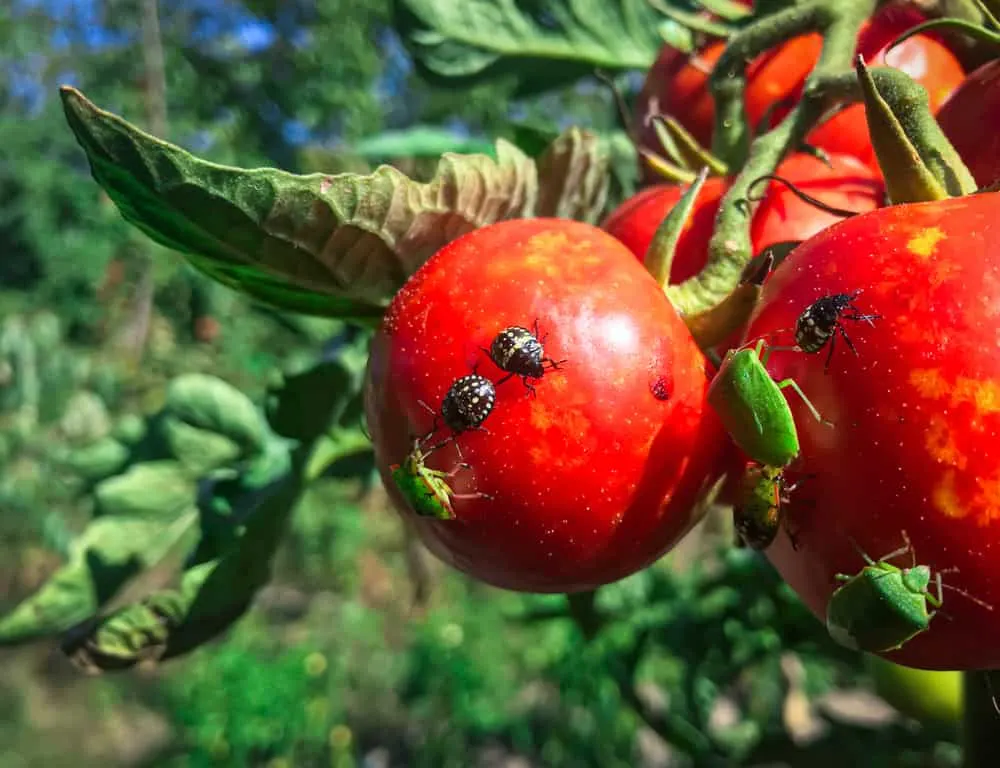
The continual lumping together of pests and diseases appears to have introduced this myth.
When scientific evidence emerged that aspirin improves disease resistance, it was only a matter of time before gardeners argued it can deter pests too. Unfortunately, there is no clear evidence to back up this claim.
If you encounter a pest problem, by extrapolating the results of previous experiments, it follows that an application of aspirin will have an effect on pests. It may improve the plant’s defenses to combat problems caused by pests, or it may improve the natural defenses of unhealthy plants to limit pest problems. But this is all speculation, as there is no real evidence to back up the claims.
Ultimately, it is not going to keep the pests off your tomato plants altogether. Aspirin only influences immune response – there is nothing stopping the pests from trying anyway. And while an application might give your plants an immune boost in the fight against pest-induced problems, it won’t remove or kill the pests.
2. Improve Seed Germination
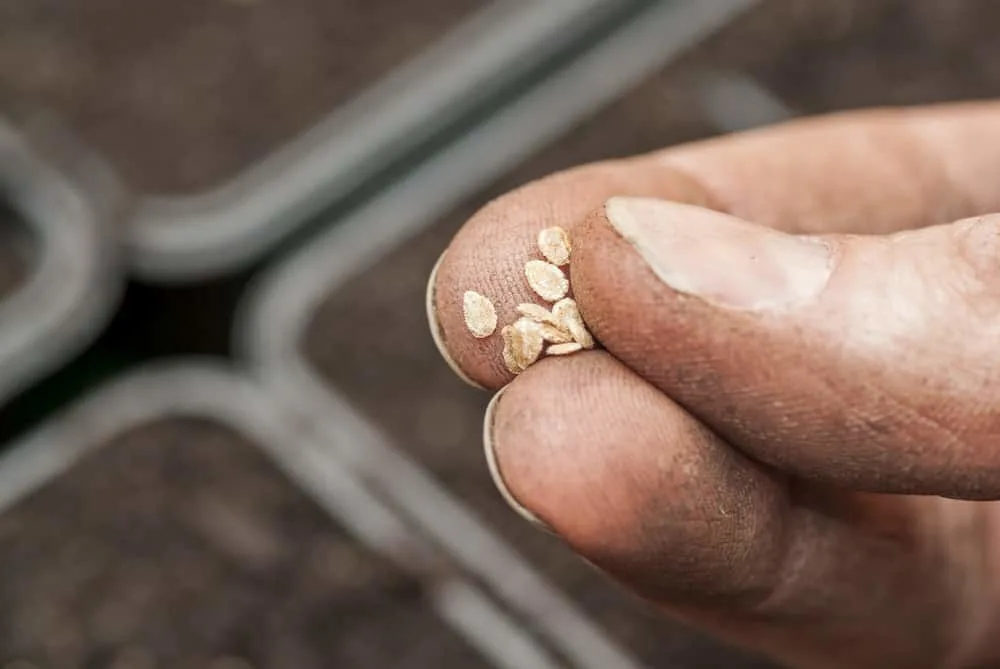
Unlike many old gardening myths, this claim has a clear origin. In the early 2000s, gardener Martha McBurney from the University of Rhode Island tested the effects of aspirin on a wide range of plants, including tomatoes. Her results have spread ever since with little questioning, despite her rocky anecdotal evidence.
After the study, McBurney described the results:
“The plants were huge, and green and with no insects. We even saw some disease problems that reversed themselves. We think we got a virus on the cucumbers, and the aspirin water seemed to reverse it. Seed sprayed with aspirin water gave 100 percent seed germination, compared to spotty germination in the other trial beds.”
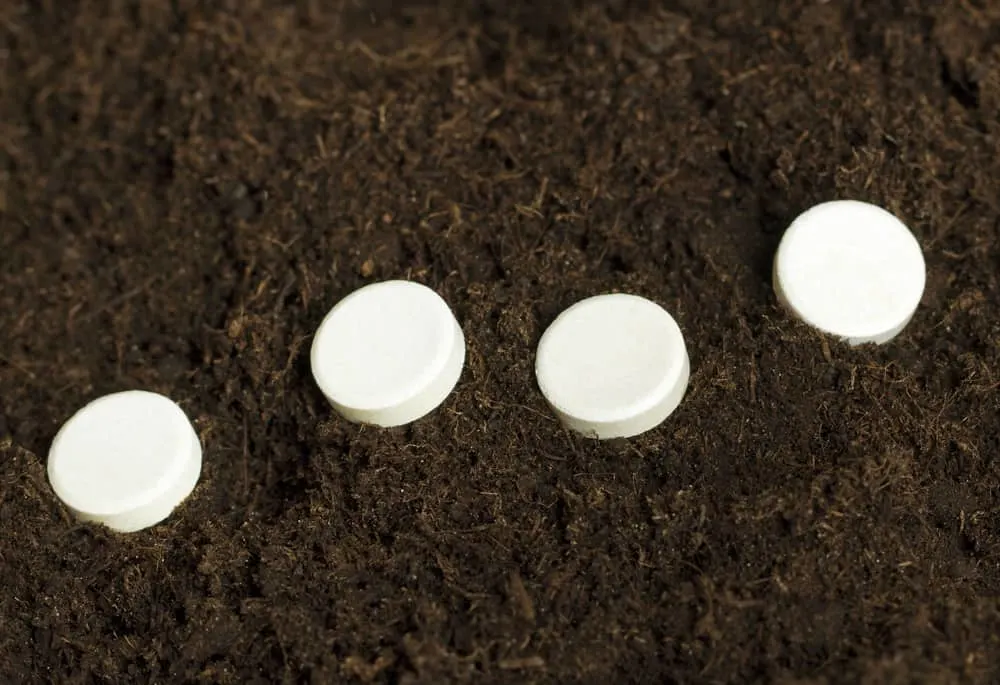
The trouble with these results is the lack of detail. Without rigorous scientific testing, it is difficult to determine whether the aspirin caused the improvements, or whether it was another entirely unrelated factor.
As the nature of the study and the results aren’t available, the evidence is completely anecdotal. And as the results have not been replicated, or even mentioned, ever since, it is difficult to argue their validity.
3. Cure Disease
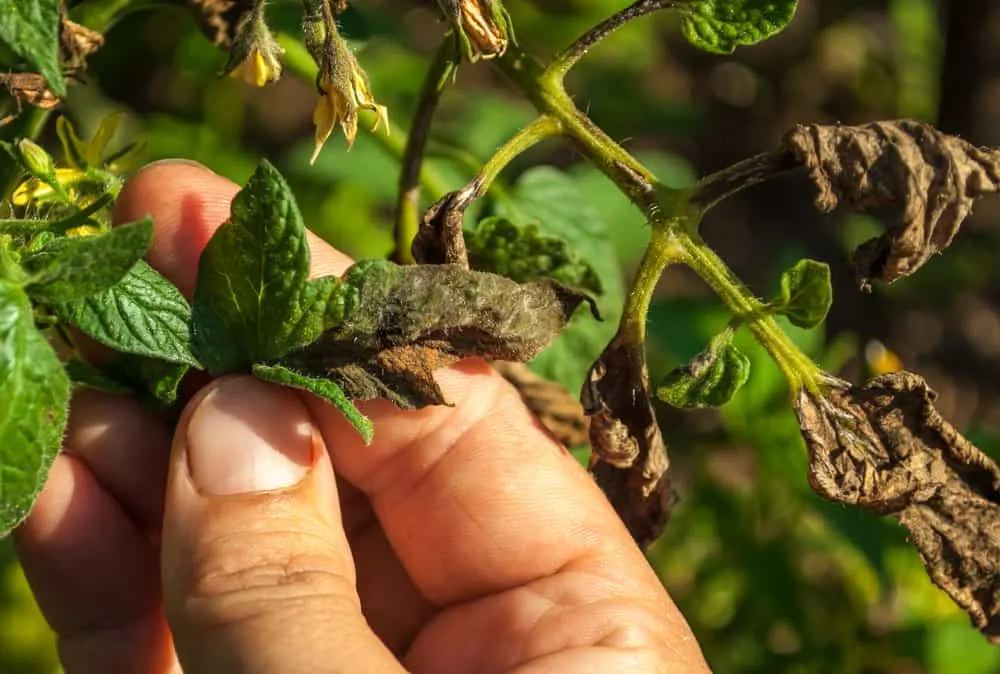
As with the pest myth problem, this claim stems from incorrect extrapolation. The studies mentioned above that assessed the efficacy of salicylic acid on disease resistance did not explore the effects once the disease was already established. Despite this lack of information, the myth that aspirin can rid a tomato plant of disease has been widely perpetuated.
Resisting disease and curing disease are two completely different tasks. Aspirin may limit the chances of your tomato plants encountering a serious infection, but if that infection is already established, the aspirin will have little impact. In fact, many common tomato diseases are not curable once established. The plant must be completely destroyed.
The evidence is pretty clear – apply aspirin (or even better, dilute salicylic acid) to your tomato plants in the early stages of growth, and it will likely experience fewer problems with disease. Apply it once a disease has taken hold, and it will have little to no impact.
Despite the propagation of a few myths, there are many scientifically approved and significant impacts regarding the use of aspirin in the garden. Add a bottle to your tomato gardening tool kit, and you’re bound to see the benefits for yourself.
